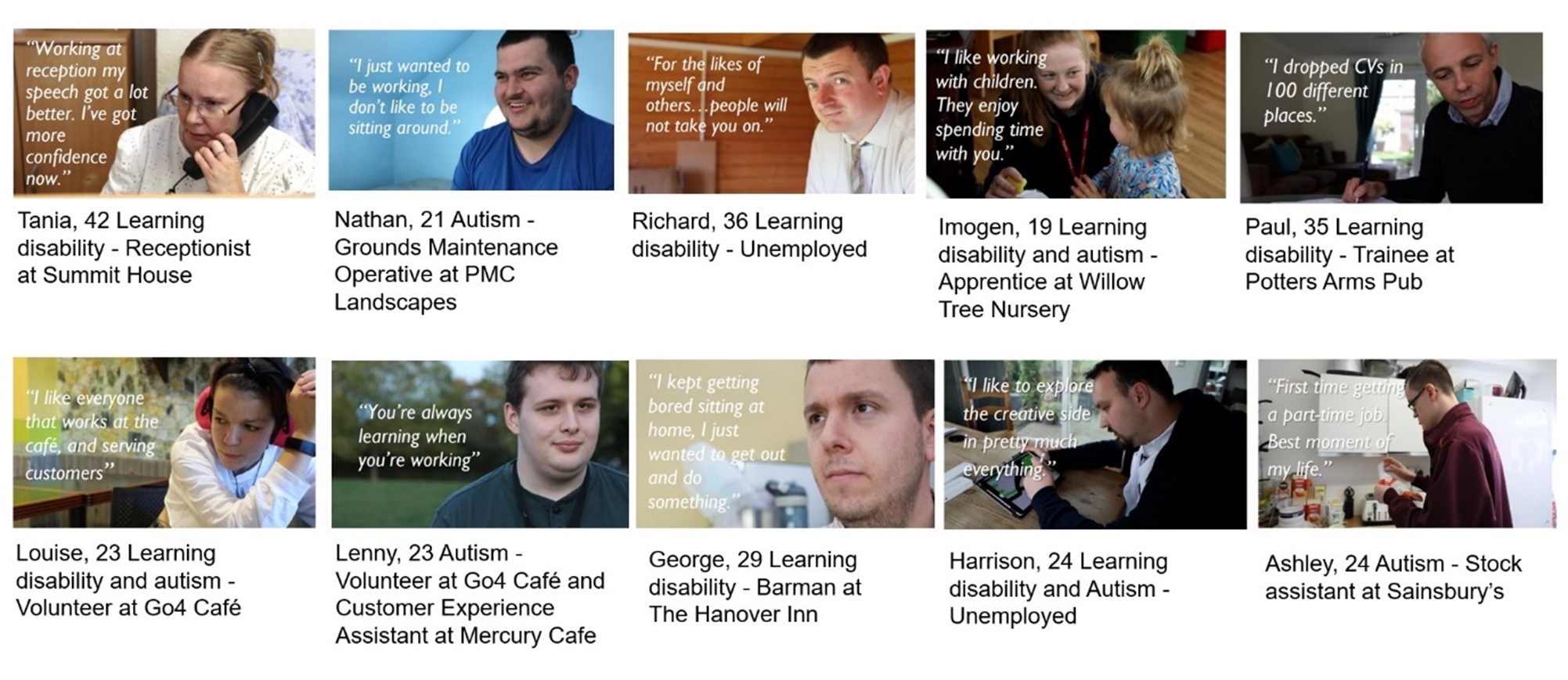
We commissioned external research agency Revealing Reality to conduct a research project during the summer of 2021 to explore the needs, motivations, and barriers to successful employment for people with learning disabilities and autism (LD&A) in Essex.
The research team interviewed ten people with LD&A, seven parents, and four employers to learn about their journeys into employment.
The ultimate goal for this research was to identify the opportunities for people with LD&A to have rewarding and meaningful employment – and getting employers across the county to see the value and benefits of doing so.
Employment can be rewarding for employees and their employers
These experiences demonstrate how employment can be rewarding and beneficial for both the employees and their employer. People with LD&A valued the opportunity to work as it had a positive impact on their lives, and employers also identified many advantages from employing someone with LD&A.
The benefits of employment for the employee include…

The benefits of having a job for people with LD&A included having a sense of purpose and feeling they were contributing to something bigger and of worth. Working gave them opportunities to progress and achieve things independently, which boosted their sense of independence and identity. Discovering and applying skills they didn’t know they had and learning to do new things were central to developing motivation.
Through employment, people with learning disabilities and autism were positively encouraged to think about their future and cultivate ambitions they could work towards. Additionally, working meant they had a more consistent routine, giving them a better sense of structure to their day and week. A key benefit for people with LD&A was the opportunity to socialise and build new relationships.
The benefits of employment for the employer…

Employers had positive experiences when employing people with LD&A, finding them dedicated and loyal employees, who were motivated to upskill and progress. Moreover, employers were proud of employees and felt good about creating opportunities in their community.
Overall, the benefits of providing better employment support will be felt not only by people with LD&A, but also their families, employers, and the council and government services.

So, what is making it hard for those with LD&A to get a job? And why aren’t those within paid employment progressing?
People with LD&A face many challenges in their journey to employment. In Essex, most people with LD&A are unemployed, and the journey into employment was not easy for those who made it.
The main barriers people with LD&A faced were:
- Parents were protective of their children and worried about them failing
- Support services often weren’t doing as much as they could to encourage paid employment
- People with LD&A struggled to imagine what kinds of jobs they could get
- People with LD&A didn’t know how to go through a typical application process
- Employers weren’t always pushing to get the best out of their employees with LD&A, resulting in ‘underemployment’
- Co-workers often didn’t understand the support and adjustments required when working with someone with LD&A
- People with LD&A feared failure and therefore avoided trying new things

You can read more in our full research report on the Essex Open Data platform, which includes more examples of opportunities for addressing the barriers mentioned above.
Watch our short film, showing just how much difference employment can make to people with learning disabilities and autism.
Please get in contact at research@essex.gov.uk, if you have any questions and if you or any stakeholders would benefit from hearing more about this piece of work.